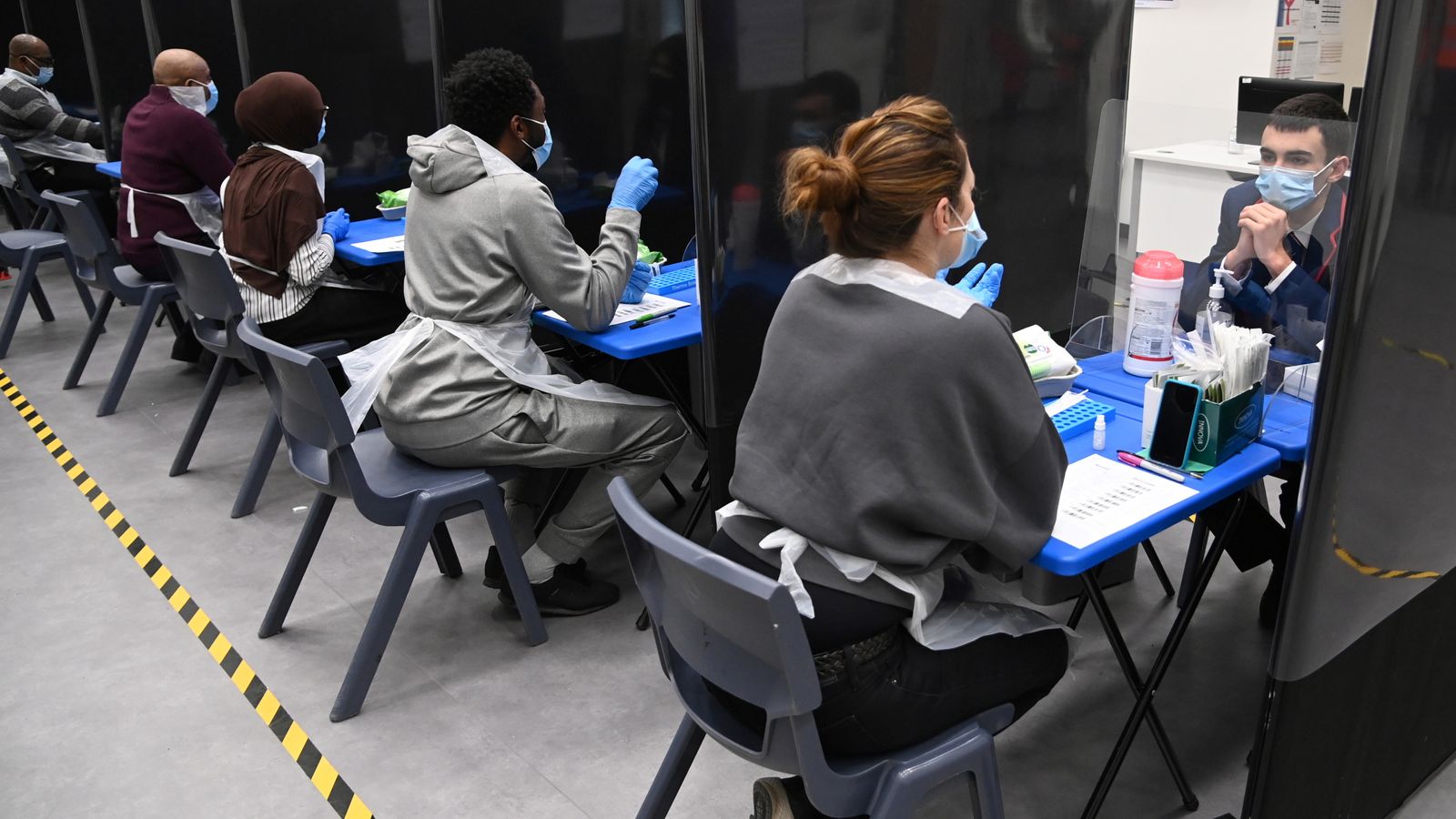The number of new COVID-19 cases recorded in the UK has risen after seven consecutive days of falls, according to government data.
The country has reported 27,734 new infections and 91 more coronavirus-related deaths in the latest 24-hour period.
The figures compare with 23,511 cases and 131 deaths announced yesterday, while 44,104 cases and 73 deaths were recorded this time last week.
Follow live COVID updates from the UK and across the world
Since the pandemic began, a total of 129,430 people have died in the UK within 28 days of a positive COVID test.
Separate figures published by the Office for National Statistics (ONS) show there have been 154,000 deaths registered in the UK where Covid-19 was mentioned on the death certificate.
However, despite the rise in cases, the seven-day average was 36.1% down from the previous week.
Some 35,446 people had their first dose of a coronavirus vaccine yesterday, taking the total to 46,689,242.
And 151,851 had their second jab, meaning 37,610,911 are now fully inoculated.
It comes as Boris Johnson stressed the need for caution despite recent falls in the number of cases.
The prime minister said recent data showing a drop in cases was “encouraging” but warned the virus “still presents a significant risk”.
He made the remarks after a senior minister told the Daily Mail that COVID is “all over bar the shouting”.
His comments were echoed by Health Secretary Sajid Javid, who said it was “encouraging” to see case numbers falling but that it was “too early to take a long-term trend from that”.
“There is still a lot of the virus around, unfortunately, so we have to remain cautious and vigilant,” he said.
“The vaccines really are our weapon against this horrible virus – it’s our wall of defence. And that wall is getting higher all the time.”
However, Mike Tildesley, who sits on the scientific advisory body Scientific Pandemic Influenza Group on Modelling (SPI-M), said it was not yet clear whether the third wave was turning around.
Dr Tildesley, professor of infectious disease modelling at the University of Warwick, said a recent fall in infections could be attributable to people being less willing to “step up” and get tested ahead of their summer holidays.
Asked about the prospect of looking back on the pandemic in October, the Prime Minister told LBC Radio: “We’ve seen some encouraging recent data, there’s no question about that, but it is far, far too early to draw any general conclusions.”
And asked whether it was certain that fully vaccinated people would be able to escape having to self-isolate from next month if they come into contact with a positive coronavirus case, Mr Johnson said: “August 16 is nailed on – there has never been any question of a review date for August 16.
“I’m very pleased that this is a country that now has the highest proportion of vaccinated adults of any country in the world – that is enabling us to make the economic progress we are.”






















